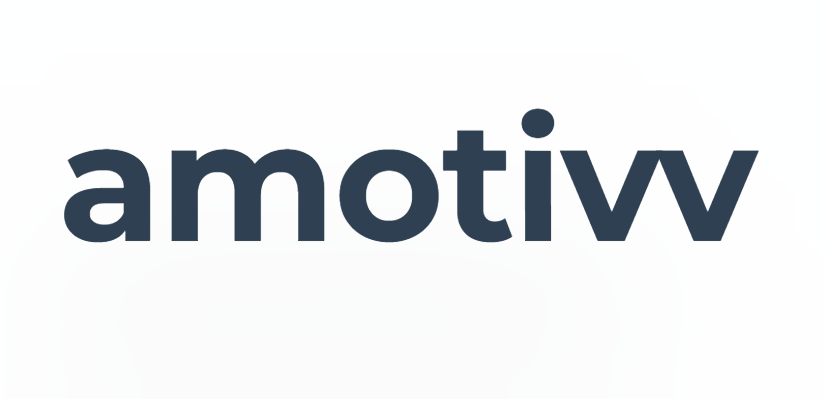The Intelligence Revolution: Why “Asking” is Overtaking “Doing” in AI
A significant study on AI usage recently published has just validated something we’ve been saying at amotivv for a while now: Yes, the future of artificial intelligence is about task automation and task optimization — BUT what is making powerful today is about relationship intelligence and decision support.
The Data Speaks
The OpenAI, Harvard/Duke study recently published analyzed usage patterns from 700 million ChatGPT users (representing 10% of the global adult population). Their findings reveal some really cool insight into how we actually use these beautiful machines, even showcasing a shift that challenges the prevailing narrative about AI’s role as we use it in real-time:
Users are increasingly “Asking” rather than “Doing.”
Between 2024 and 2025, there was steady growth in users seeking guidance, advice, and information (“Asking”) and declining proportions of users requesting task completion (“Doing”). Meanwhile, 70% of all AI interactions now happen outside of work contexts entirely.
This isn’t just a usage trend—it’s evidence of how humans feel comfortable and want to relate to artificial intelligence today.
Beyond the Productivity Myth
The AI industry has been fixated on productivity metrics and task automation, and yes, it is essential for all those business cases out there. Every product announcement touts faster content generation, automated workflows, and the elimination of friction. But the data tells a different story: people don’t primarily want AI to do things for them—they want AI to help them think through things.
This distinction matters because it reveals the difference between transactional and relational intelligence.
Transactional AI treats each interaction as discrete. It optimizes for task completion, measures success in time saved, and views the human as someone with problems to be solved.
Relational AI understands that each interaction exists within a context of previous conversations, developing understanding, and growing trust. It optimizes for decision quality, measures success in relationship depth, and views the human as a thinking partner.
The Trust Gap
Here’s what’s particularly revealing about the study: despite predictions about AI companionship being the primary driver, only 1.9% of interactions currently fall into “Relationships and Personal Reflection” and 0.4% into role-playing scenarios.
AI is gaining the trust of the people! To give suggestions and guidance., But “Doing” is another story altogether! There’s a massive gap between the growing demand for AI counsel and the current systems’ ability to provide meaningful relational intelligence.
Most AI systems suffer from “conversation amnesia”—they can’t remember previous interactions, learn from relationship patterns, or build a persistent understanding that enables truly sophisticated guidance.
The Memory Foundation
At amotivv, we’ve been building toward this future through our Memory Pod Fabric and trust architecture framework. Our thesis has always been that persistent memory isn’t just a nice-to-have feature—it’s the foundation that enables AI systems to move from transactional interactions to genuine relationship intelligence.
When an AI system can remember what you’ve discussed, how you prefer to use and look at information, what kinds of decisions challenge you, and how YOUR thinking has evolved, it transitions from being a sophisticated search engine to a thinking partner.
The study confirms this direction: ChatGPT “likely improves worker output by providing decision support, which is especially important in knowledge-intensive jobs.” However, current systems can only provide surface-level decision support because they lack the relationship context that enables truly personalized guidance.
The Relationship Economy
What gets my engine revving the most about this is what this suggests about the emerging relationship economy between humans and AI. As AI systems develop persistent identity and relationship memory, we’re moving toward a future where:
-
AI advisors maintain long-term relationships with professionals, compounding knowledge about their decision-making patterns and professional challenges.
-
AI companions provide emotional intelligence and support through relationship understanding that deepens over time.
-
AI collaborators contribute to creative and strategic thinking by understanding not just what you’re trying to accomplish, but how you prefer to think through complex problems.
Building for Relationships, Not Just Tasks
The “Asking over Doing” trend validates our idea and conviction that the next round of AI development has to prioritize good relationship capabilities over pure productivity features. This means:
-
Persistent Memory Systems that maintain relationship context across all interactions
-
Trust Architecture that enables appropriate vulnerability and authentic communication
-
Decision Quality Frameworks that optimize for long-term wisdom rather than short-term task completion
-
Co-Evolution Models where both human and AI capabilities grow through their relationship
The companies that understand this shift will build the next generation of AI systems. Those that remain focused purely on task automation will find themselves competing in an increasingly commoditized market.
The Strategic Opportunity
So what should you and your business be doing? Yes, this does represent a fundamental reframing opportunity. Instead of asking “How can AI make us more efficient?” the better question becomes “How can AI make us more intelligent?” Samartification and the difference are profound. Efficiency gains have natural limits and create competitive parity. Intelligence gains compound over time and create sustainable competitive advantages.
At amotivv, we’re building the infrastructure layer that enables this transition—not just for individual AI interactions, but for entire organizations to develop institutional intelligence that persists, evolves, and compounds.
The future of AI isn’t about building better task-completion engines. It’s about building relationship partners that help humans navigate an increasingly complex world with wisdom that deepens through connection.
The data is clear: users are ready for that future, and we are here to build it for the industry. Build on builders!!!

amotivv
Creating purpose-driven AI solutions that unite technological capability with organizational identity through distributed cognition and extended intelligence systems.
Russell Moore
CEO of amotivv.com
706-594-2423







